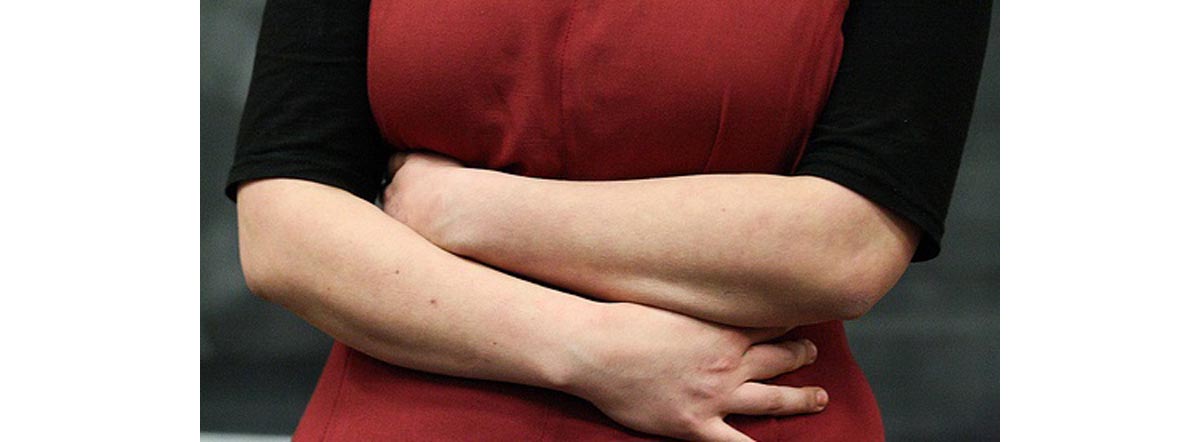Miscarriage is not something you want to think about when you go into a pregnancy — when you are optimistic and looking forward to welcoming a new baby into the family. Yet, as many as one in five pregnancies end in miscarriage.

How can you recognize miscarriage symptoms, what should you do when you suspect that you are miscarrying, and is there anything a woman can do to prevent miscarriage?
Starting at the beginning: reducing your chances of miscarriage in the preconception period?
Taking good care of your health is essential during the period in which you are trying to conceive, and of course throughout your pregnancy. Taking a 400 mg folic acid supplement daily will increase a woman's fertility and has been proven to reduce the risk of neural tube defects such as spina bifida. Quitting smoking, and abstaining from alcohol at least during the last two weeks of your cycle will both help prevent miscarriage.
(Illegal) drugs should quite obviously be avoided (and not just during pregnancy!), and women who are hoping to conceive a baby should have a discussion with their doctor about any prescription drugs they are taking to evaluate their safety as well. Not all medications are compatible with pregnancy and trying to conceive, and some even cause serious birth defects.
Infections that could harm a fetus
Besides eating a varied, healthy diet there is only one more thing women can do to avoid miscarriage in the early stages of pregnancy. When you decide to take the plunge and ditch your birth control, inform yourself about infections that could harm a fetus. The most frequent ones are listeria, salmonella, and toxoplasmosis. So, stay away from raw meat, fish, eggs and dairy products and avoid changing your cat's litter tray or engaging in any gardening without gloves.
Also see your doctor about any booster vaccines you may need. If you do not have access to your immunization record, get your titres checked — you'll find out if you have antibodies to vaccine-preventable diseases, so you know if you need to get vaccinated or not.
Staying fit and healthy, and being proactive in those areas of your life that you can control, will reduce your risk of miscarrying to a certain extent.
Unfortunately, most miscarriages are caused by chromosomal defects and other conditions that mean the fetus would not survive birth, and even pregnancy.
How To Recognize A Miscarriage
Most miscarriages happen in the first trimester — the first 12 weeks of your pregnancy. During this time, the newly pregnant body is going through an enormous amount of changes. Women who have never been pregnant before may worry about every pregnancy symptom, and about a lack of pregnancy symptoms! So, how do you really recognize a miscarriage?

Don't think of pregnancy loss as a single event, and realize that it's a slow process in which your body rejects the embryo or fetus for whatever reason. There are many different symptoms that can signify a miscarriage, and some of the red flags that can signify a miscarriage may also simply be pregnancy symptoms. Good examples are abdominal cramping, which is a common early pregnancy symptom as well as a miscarriage symptom, and vaginal bleeding, which does not necessarily mean you are miscarrying.
Now, here's a quick overview of miscarriage symptoms. We'll take a closer look at them later on.
-
Vaginal bleeding, often heavy and containing clots and tissue
-
Abdominal cramping and pain, sometimes in clear patterns like “mini labor contractions”
-
A sudden decrease in or total lack of pregnancy symptoms a woman did have before
-
Sudden weight loss
-
No fetal heartbeat detected at ultrasound
Vaginal bleeding
Vaginal bleeding that occurs during the first trimester of pregnancy is often very clear sign of trouble. Light spotting — a few drops of blood that do not continue appearing — is not usually a problem, especially if the blood is black or dark brown. This will often be old blood that your body is expelling. Red, fresh, blood is a real problem, however. Bleeding caused by a miscarriage may start off slowly and increase in volume later, or it can be heavy right away.
The bleeding that a woman who is having a miscarriage experiences will typically start off with blood only. A little later in the process, clots and tissues will show up as well. A little later yet, the tiny amniotic sac with the fetus will be expelled. If you are having a miscarriage at home, it is advisable to save any fetal materials that may come out, as they can help your doctor confirm that the miscarriage is complete. Women having a repeat miscarriage may also want to request testing to find out what the cause of the miscarriage was.
Note: A lack of bleeding does not necessarily mean you are not having a miscarriage. In a missed miscarriage, the fetus has passed away but the body does not expel it.
Abdominal Cramping And Pain
A miscarriage involves expelling fetal tissues and the accompanying products (placenta, amniotic sac, and uterine lining), and is essentially a mini labor and delivery. It is no surprise, then, that a miscarriage causes cramping and pain, and often actual contractions.
Cramping and some pain can be simple early pregnancy symptoms, as well. On their own, they should not get you worried. Abdominal cramping that shows up in a clear pattern and pain along with bleeding usually give you all the information you need to warn you that you are dealing with a miscarriage.
No More Pregnancy Symptoms
Did you have morning sickness before, and has it suddenly gone away? Are you less tired than you were? Are you losing weight? Has your appetite suddenly come back? Pregnancy symptoms are caused by hormones that are the result of a pregnancy, so when the fetus passes away the pregnancy symptoms can stop abruptly. In the case of a missed miscarriage, where the fetus remains inside the body, an abrupt end to your pregnancy signs and symptoms may be the only indication that you are having a miscarriage, short of having an ultrasound.
No Fetal Heartbeat
No fetal heartbeat is, beyond eight weeks or so, a very reliable sign that the fetus has passed away, especially if the due date was clearly established and a heartbeat was detected at a previous ultrasound. A woman may call her doctor after she notices miscarriage symptoms like bleeding and abdominal cramping, and the doctor will then commonly perform an ultrasound to confirm the miscarriage. Alternatively, the woman may have a routine prenatal appointment and find out that the fetus has no heartbeat by chance.
In cases where a miscarriage has already started naturally, your OB/GYN may tell you to go home where your miscarriage can take its natural course, or they may want to keep you in until the miscarriage is complete. This mostly depends on what country you live in. If you had a missed miscarriage, your doctor may advise you to wait a few days to see if the miscarriage will begin on its own, or may advise you to undergo a D&C (dilation and curettage) to remove fetal and surrounding tissues right away.
Women who are worried that they may be miscarrying but who are not sure are advised to check in with their doctors. There is no shame in going to an appointment simply to confirm that everything is OK, after all.
- Photo courtesy of adamscotti on Flickr: www.flickr.com/photos/adamscotti/5423434716
- Photo courtesy of romainguy on Flickr: www.flickr.com/photos/romainguy/249374677

